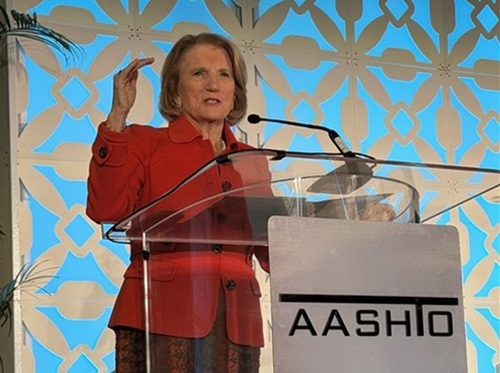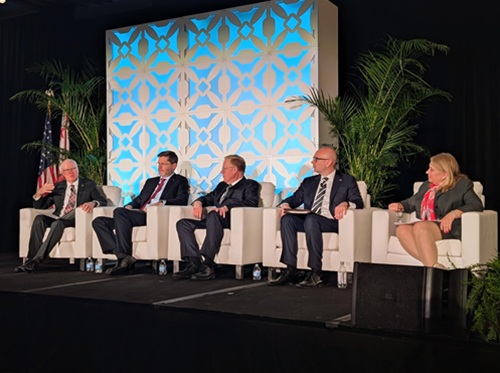During recent testimony before the House of Representatives Transportation and Infrastructure Committee, Pete Buttigieg (above) – secretary of the U.S. Department of Transportation – reiterated his agency’s strong commitment to its national electric vehicle or EV policy and deployment goals.
[Above photo via the House T&I Committee]
“This is both an exciting and challenging area for us, especially when it comes to building out national EV charging infrastructure,” he said at House T&I committee hearing held on September 20.
“I liken this to the state of play where we were in 1915 with the development on the internal combustion engine,” Buttigieg pointed out. “Many of these [EV] technologies are new and we don’t have the nationwide charging network yet we know we’re going to need. There are many challenges ahead to reach the president’s goal of having a 500,000 EV charger network by the end of this decade. We’ve able to approve plans from every state on how they plan to use formula dollars from NEVI [the National Electric Vehicle Infrastructure program launched 2022] and are now putting those dollars to work.”
He also highlighted that USDOT is adopting the U.S. Department of Energy’s EV Charging Stations Categorical Exclusion or CE under the National Environmental Protection Act or NEPA within USDOT funding opportunities and programs.
In the federal register notice filed on September 20, USDOT said that CE for EV chargers would be limited to areas where access and parking are in accordance with applicable requirements, such as local land use and zoning requirements, in the proposed project area and would incorporate appropriate control technologies and best management practices.
During his testimony, Buttigieg also committed USDOT to provide very specific or targeted waivers from its new “Build America Buy America” rules to help agencies acquire materials or products that are currently unavailable – especially where EV chargers are concerned – while maintaining USDOT’s to push to increase the use of such products produced by the American manufacturing sector.
The hearing – which lasted several hours – covered a wide array of transportation and infrastructure topics, of which EVs were just one of many focus points.
“We are responsible for targeting infrastructure investments to programs and projects that improve and expand our infrastructure and supply chain network to safely and efficiently move people and goods,” Rep. Sam Graves (R-MO), chair of the House T&I committee, noted in his opening remarks. “Now more than ever, this administration should be focused on real infrastructure improvements and policies.”
Buttigieg echoed that sentiment in his remarks as well.
“I believe that the 2020s will be known not just for those early years when the pandemic upended transportation, but for the years we’re entering now, when transportation gets safer, more affordable, and more efficient,” he said. “With further partnership with Congress, we can maintain this new momentum and ensure that the transportation laws protecting Americans are modernized alongside physical transportation infrastructure.”
 Top Stories
Top Stories
Congressional Leaders Detail Key Transportation Priorities
February 26, 2026 Top Stories
Top Stories

